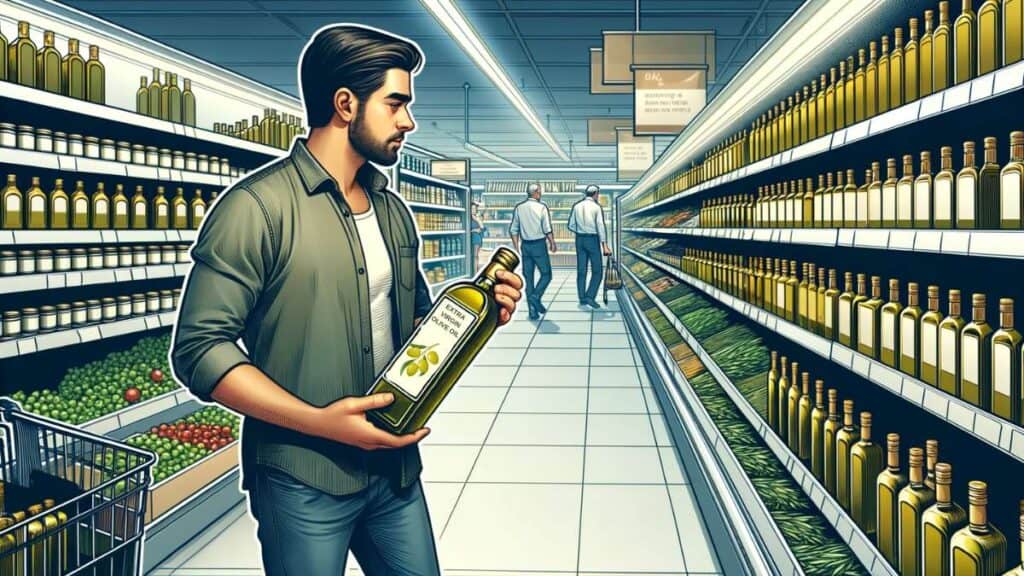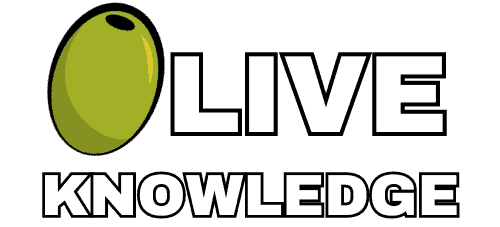Olive Oil Harvest Date – Why It’s Important To Know
Olive Knowledge is a part of Amazon Associates. As an Amazon Associate, we earn from qualifying purchases. Read our Affiliate Disclosure to learn more.
A few days ago, while shopping for olive oil, I spotted a bottle with a harvest date that was 36 months old. Intrigued, I noticed several others like it and decided to write this post. I want to emphasize the importance of checking the harvest date when buying olive oil and why it’s crucial to avoid those that have aged for so long.
Key Takeaways:
- The Olive oil harvest date is the day when the olives are harvested from the trees.
- Harvested olives are always pressed for olive oil within 24 hours of harvesting.
- Olive oil keeps its high-quality nutrients and antioxidants for 18 to 24 months after the harvest date.
- You shouldn’t buy olive oil if the harvest date is 24 months or older.
The Importance of The Olive Oil Harvest Date

The harvest date is the day when the olives are harvested from the tree, and the oil is made from them.
All the “serious “manufacturers of olive oil will always put the “harvest date” tag on their bottles so that you know the exact time when the olives were picked.
Together with that, olive oil companies will also include the “best by” date, which is their recommendation of the period that olive oil should be consumed completely.
Furthermore, most manufacturers will also claim how soon you should spend olive oil after opening it. I recommend that you always consume it within two months (60 days) of opening.
Why Is Harvest Date So Important?
Suppose you want only the best olive oil for you and your family. In that case, a harvest date is especially important to consider when buying olive oil, especially if you’re buying extra virgin olive oil (EVOO).
As you may already know, olive oil loses its nutrients and antioxidants with time. For instance, all-natural honey can last for many, many years, and high-quality olive oil can last up to two years only (without losing its healthy properties).
When you know the exact harvest date, you’ll be able to determine whether the specific olive oil bottle is for you or not, especially after reading this article to the end hehe.
What Is The Best Harvest Date For Olive Oil?
Okay, now that you know why the harvest date is so important, I want to show you the best harvest date for olive oil.
Of course, in the end, you’re the one who decides whether you want some olive oil or not, but I’m here to show you which oils you should avoid (when looking at the harvest date).
In my opinion, the newer the harvest date is, the better. So, always buy olive oil with the most recent harvest date.
Mostly, you won’t be able to find olive oils whose olives were harvested 1-2 months ago (because of all the producing, packaging, and shipping processes). But after that, they should be on the shelves already.
How Long Is Olive Oil Good After Harvest Date?
Most olive oils are good only for 18-24 months. You’ll also see some companies promoting the 12-18 months mark, but in my opinion, everything under 24 months is still good enough.
If the olive oil is stored in proper containers, it’ll be fine for 24 months. However, please stay away from buying olive oil in PVC containers since they’re bad for olive oil, and olive oil’s shelf life decreases in them.
So, not only the harvest date is important, but the packaging is just as important, too. If you’re buying olive oil from small olive growers, make sure they keep large amounts of olive oil in inox containers, which is, so far, the best container for keeping olive oil healthy for a long time.
If you don’t spend an olive oil within the recommended period, check out these ways to use expired olive oil.
Should You Buy Olive Oil With +24 Month Old Harvest Date?
Some markets may put a discount tag on olive oils whose harvest date is older than 24 months. So, should you buy it in order to save a few bucks?
In my opinion, you should stay away from that oil and buy the “newer” one instead. Old olive oil won’t make you feel sick or similar, but it won’t be so healthy anymore and will also lose its color and taste.
Honestly, I hope that most markets will be “serious” enough to remove all the bottles with “expired” harvest dates from their shelves and return them back to the manufacturer so they can refine that oil for further needs.
Final Words

Knowing some basic information about all kinds of foods is crucial if you want to get the best out of them. Olive oil isn’t an exception. If you never paid attention to the harvest date, try to keep it in mind the next time you go to the market and buy a new bottle of olive oil.
Also, if you live in an area that’s suitable for olive growth, I suggest you try planting a few trees and potentially make your olive oil in a few years. That way, you’ll always know all the information about olive oil, and you’ll know how healthy it is.
Also, don’t forget to store olive oil properly once you open the bottle. Here’s my thorough guide on keeping the olive oil fresh after opening it.
